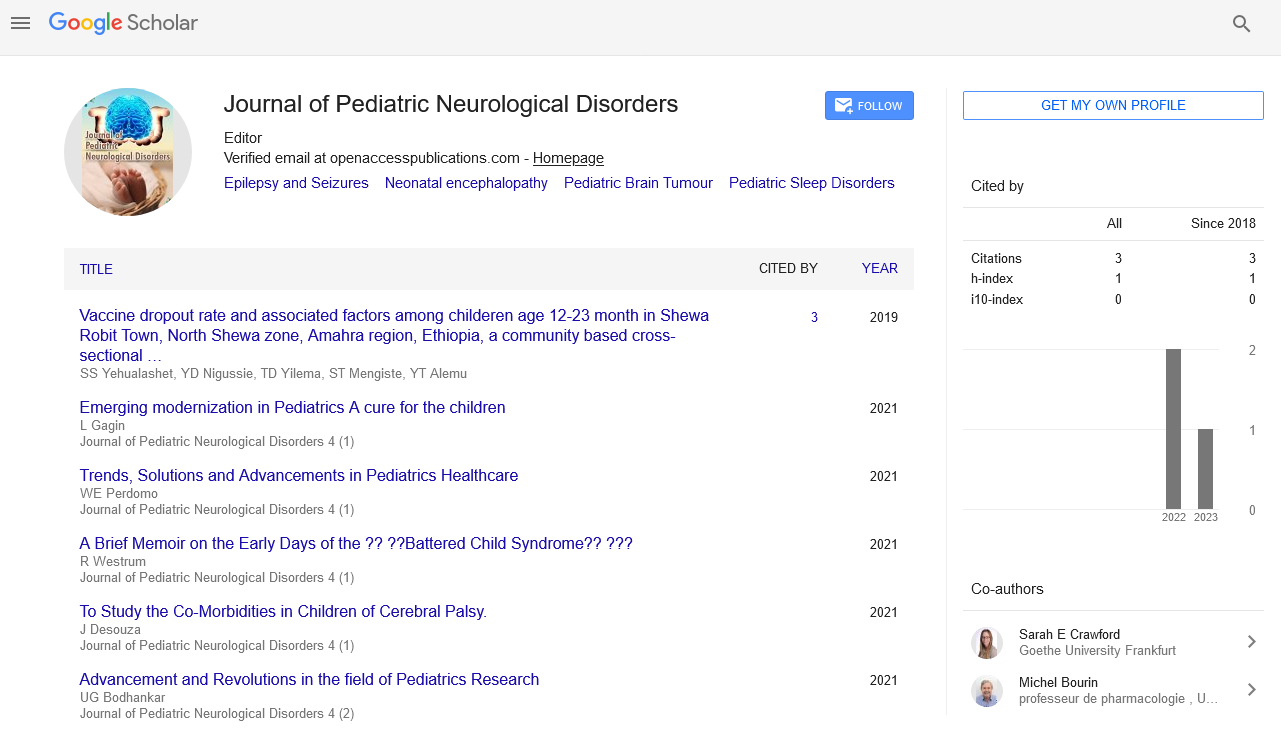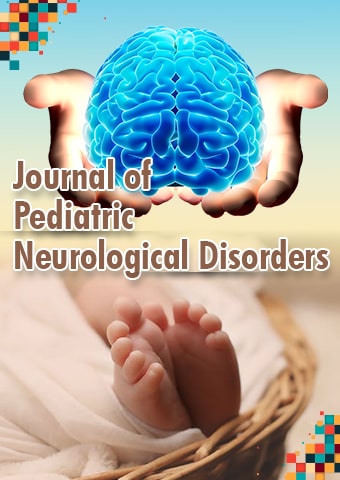Short Article - Journal of Pediatric Neurological Disorders (2019) Volume 2, Issue 1
Exploring Recent Researches and Explicating Vascular Dementia for Desirable Health
Tammi C. McGill-Carter
Family Focus, Inc, Valparaiso, In Lake County Medical Reserve Corps, Indiana Autism Society of Indiana, USA
Abstract
Around 900 million people age 60 and live worldwide over. Increasing life expectancy leads to rapid growth in this figure, and is associated with increased prevalence of chronic diseases such as Vascular Dementia. Globally, the results of a recent meta-evaluation reflect that in 2010, 44 million people worldwide lived with Vascular Dementia, with figures expected to nearly double every 20 years, to 65.7 million in 2030 and 115.4 million by 2050.
In line with the observed, the meta-evaluation accounts for 109,952 older people ‘at hazard’, and it's far representing 332,323 individual-years of follow-up. The Western European examine indicates 42% of the full individual-years, 24% of the people in North American, the East Asian examine indicates 16%, and the Latin American examine indicates 13%. just 5% of people are contributed by means of the research from Australasia, Asia Pacific, South Asia, and sub-Saharan Africa blended.
It is estimated that in the UK about 8,50,000 people live with Dementia and about 1,50,000 people have Vascular Dementia.
While Vascular Dementia mainly disturbs people over the age of 65, there are about 40,000 younger people living with the condition in the UK. Another common misconception surrounding Dementia is that it's a rare disorder or illness. It would be the 18th largest economy in the world, according to research If global Vascular Dementia treatment were a country. Annually, the market prices of businesses like Apple (US $742 billion) and Google (US $368 billion) are surpassed.
Dementia is a general term for sicknesses and conditions portrayed by a decrease in memory, language, critical thinking and other reasoning aptitudes that influence an individual's capacity to perform ordinary exercises. Memory misfortune is a model. Alzheimer's is the most common cause of dementia.
This gathering will create knowledge, provide support, help learning, and allow families and caregivers to search for their adored
one for appropriate administrations and develop the most ideal home environment to help recover from this mind-boggling and decimating disease.
The proportions of those with different forms of dementia can be broken down as follows:
•Alzheimer's disease
•Vascular dementia
•Mixed dementia
•Lewy-body dementia
•Fronto-temporal dementia
•Creutzfeldt-Jakob disease
•Wernicke-Korsakoff syndrome
Scope and Importance:
Global market care in assessment of vascular dementia syndromes, with prices of movement disorders ranging from 10.5 billion in 2011 to $11.1 billion in 2012. Total market cap estimated to hit $16.7 billion in 2017 with an rise of 8.5 percent at an annual cumulative growth rate of five years (CAGR).
Somebody develops dementia every 3 seconds out of every corner of the world. There was an estimated amount of 46.8 million people living with dementia worldwide in 2015 and the figure is expected to be close to 50 million in 2017. This figure could double every twenty years, reaching 75 million in 2030 and 131,5 million by 2050. In developed countries too, it is often observed to be increased. For now, 58% of people with dementia are living in low and middle income countries, may be, by 2050 this can rise to 68%.
Worldwide results of latest meta-analysis show 44 million people (worldwide) suffering from Vascular Dementia in 2010 and predicted to double every 20 years to 65.7 million in 2030 and 115.4 million in 2050. In 2010, 58 per cent of all low- or middle-income people in countries were diagnosed with dementia. This proportion was expected to increase to 63% in 2030 and 71% per year. The values are expected to double by 2030 and triple by 2050 to 115 million. The second most important cause of dementia in more experienced individuals is vascular dementia, otherwise called multi-infarct dementia. Since it has a lower profile than Alzheimer's, many people don't rely on vascular dementia until neglect is risky. This is similarly difficult to assess and it is difficult to know just how many people suffer the ill effects of vascular dementia

